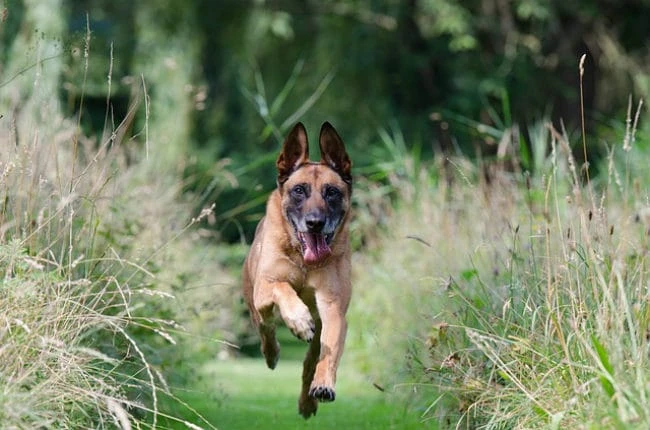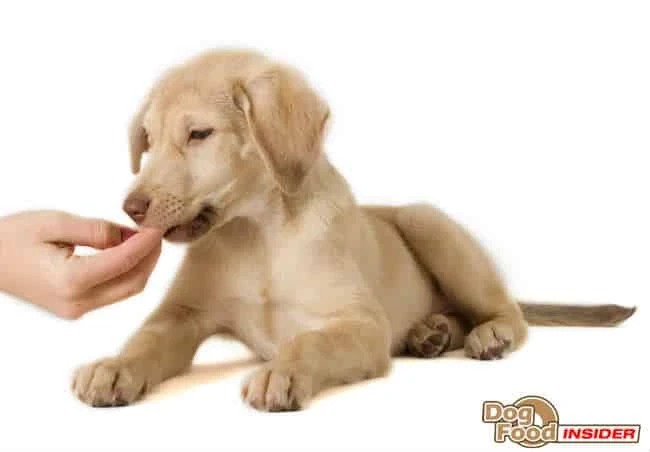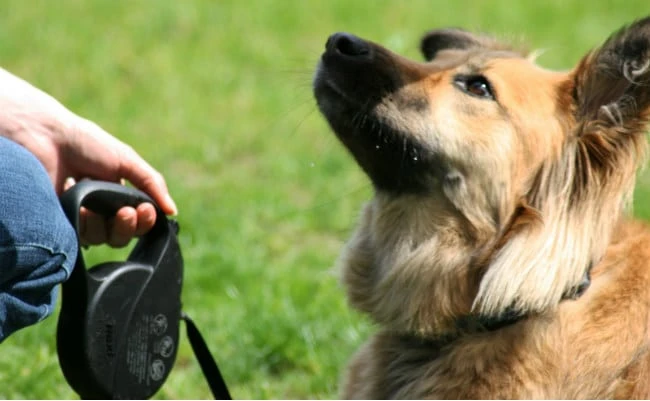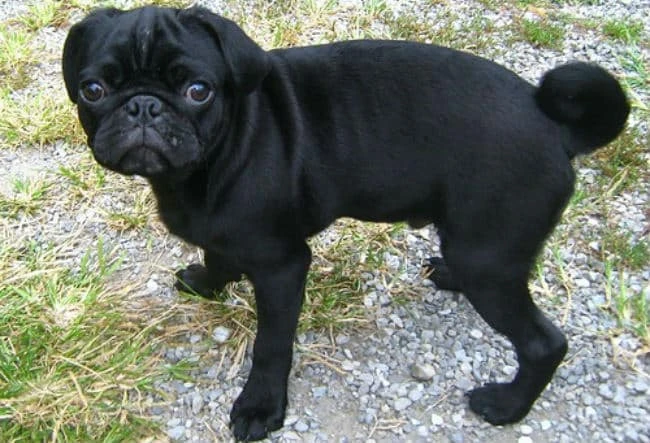Puppy Behavior, Training a Dog to Sit, Stop Puppy Biting

Learn about puppy behavior with the best free puppy training tips on how to train a puppy at 8-11 weeks old.
To understand puppy behavior you need to start puppy socialization (so you can watch your puppy) at this point in your puppy’s development. Just like a human toddler your puppy will be exploring everything that that surrounds him.
This is a new world for your puppy but it is an important time for your puppy to start learning.
Try not to get too caught up in the wander of having a new puppy of course you need to enjoy having such a wonderful animal around but remember that it is a perfect time to train your puppy with the basics.
Some dog trainers believe that if a puppy is not taught basic training commands like ‘sit’ and ‘fetch’ by the age of 8-11 weeks of age they will not be able to become a detection or guide dog in later life.
This is important if that’s why you purchased your puppy in the first place!
Take a quick look at the video below on training a dog to sit as it’s a great and easy command to start your puppy training with…
Puppy Behavior – Basic Training
Training a Dog To Sit
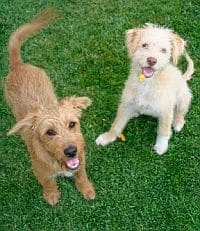
Watch the video below for some basic tips.
It will also help give some structure to your puppy’s new environment, set some boundaries and help you watch and address unwanted behavior.
Stop Puppy Biting
If you want to stop puppy biting it is quite easy to cure if you catch it early.
The best way to stop puppy biting is to try diversion tactics. At the early age of 8 – 11 weeks of age a puppy is still learning to control his bite and jaw reflex.
Start by trying to redirect your puppy’s biting problem from your skin to a chew or his dog toy.
If your puppy is still biting your hand, use a firm ‘No’ and replace your hand with a toy. If your puppy is teething then use an ice cube instead of a chew toy.
If your puppy is still biting you or family members, put a glove on your hand that has a foul taste or smell this will stop puppy biting as your puppy will learn to associate the nasty taste with the bite. Still use the ‘No’ command though.
Puppy Development at Different Ages
Don’t forget to visit our other pages on puppy behavior and development:
- Puppy development and behavior from 12 – 15 weeks old
- Puppy development and behavior from 16 – 19 weeks old
- Puppy development and behavior from 20 – 24 weeks old
Puppy Behavior – let your puppy explore
It’s important that your puppy expores his new environment – don’t be too over protective – if your puppy becomes scared try not to over indulge him otherwise your affection will only reinforce his fear.
Your puppy will look to you as his leader – if you are over protective when he is scared he will always feel that he has a reason to be frightened and his behavior gets attention!
Always try and remain calm and your behavior will relax your puppy – try and imagine that you are the pack leader and alpha male.
If your puppy’s behavior becomes confident then this is a good time to reward him with a treat – this will help dispel any fears that your puppy may have and will encourage him to be more confident.
Puppy Behavior-start House training
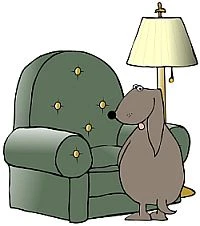 Early training is important
Early training is important
Puppy Behavior – 8-11 weeks old – what to expect
You do need to expect certain puppy behavior problems such as crying, waking up in the night, soiling etc – but your must remain patient as he is still only a baby.
- Puppy crying is common so expect your puppy to cry when he is left alone as he is not used to being seperated from his mummy (or daddy) i.e you!
- Play biting is also common but don’t allow it! Just because your puppy is a baby don’t allow him to start biting or chewing your clothes – even in play.Many owners make this mistake and facilitate it – but it’s not advised as it could lead to dominance and puppy behavior problems as your puppy gets older.
- Puppy chewing is normal as he is investigating his new environment just make sure he is using a chew or toy and not your clothes.Your puppy will not cause too much damage if he you do catch him chewing your shoe as his teeth are not fully developed at 8-11 weeks and his jaw is not at it’s full strength.
Puppy Behavior – House rules
Remember the House rules
- Just because your puppy is young don’t allow bad puppy behavior such as jumping up on the sofa or on the table -set the House rules and don’t budge.
- Don’t allow your puppy to jump up as this may become a real problem if he gets too big.
- Be a strong and dominant figure in your puppy’s life (alpha male) and someone your puppy can look up to for support and guidence.
- Keep the training fun and play with your puppy to encourage positive behavior.
- You can introduce puppy leash training but keep the sessions short as your puppy is still young and has a very limited attention span.
- Correct unwanted puppy behavior as soon as it starts – you don’t want them to become a habit.
- Although I have mentioned that you shouldn’t be over protective with your puppy – if your puppy is in obvious danger of course you should pick him up but this really goes without saying.If your puppy is shaking because a harmless object has scared him rather than picking him up try diverting his attention.
Puppy Behavior – basic principals
Some top puppy training tips to remember
- Be positive – give lots of praise when your puppy does something good.
- Be fair – accept mistakes are going to happen but never ever resort to physical punishment.
- Be patient – remember that a puppy has a very limited attention span so keep puppy training short and fun.
- Be consistent – set the House rules and stick with them – consistency is the key.
Puppy Behavior – 8-11 weeks old
A quick reminder of what to expect.
What to expect – puppy’s aged 8-11 weeks old…
- Soiling in the House, waking up in the night.
- Jumping up when excited either at food time or when you come home.
- Crying when he is left alone .
- Fearful of objects around the House.
- Chewing anything that he can get hold of.
- Play biting and pulling clothes – but don’t allow it.
…and what to do…
- Set the ground rules
- Be strong and fair.
- Avoid comforting or coddling your puppy too much when he becomes fearful.
- Keep nutrition simple
- Start puppy socialization
